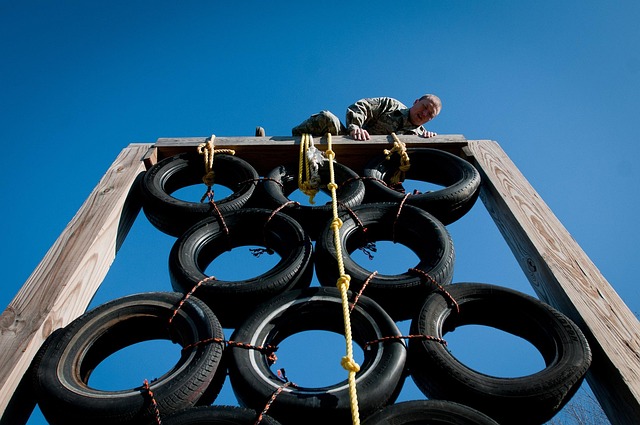Hazing, a harmful practice in student groups and military training, is illegal in Kentucky under anti-hazing laws. Victims of physical and psychological abuse within social fraternities/sororities can seek justice with the help of a hazing abuse lawyer in Louisville, KY, who navigates the legal system to protect their rights. These specialists are vital for holding perpetrators accountable and raising awareness about hazing culture. Kentucky's strong legal framework offers protection to victims, enabling them to pursue damages for physical and emotional injuries through skilled legal representation. By combining education, policy, and legal strategies, hazing incidents can be prevented and addressed, fostering safer environments in schools and organizations.
In Kentucky, hazing incidents within social groups and organizations can have severe legal repercussions. This article delves into the complex landscape of hazing and its legal implications, offering a comprehensive guide for both victims and those seeking justice. We explore what constitutes hazing abuse, the vital role of a specialized Hazing Abuse Lawyer Louisville KY, and the rights and resources available to affected individuals. Additionally, we discuss preventive strategies to address this pervasive issue.
Understanding Hazing and Its Legal Implications in Kentucky
Hazing, often associated with student organizations and military training, refers to any act or series of acts that cause physical or psychological harm and are designed to initiate or familiarize someone with a group’s culture. In Kentucky, hazing can take various forms, from pushing and shoving to more severe abuse, all of which are illegal under the state’s anti-hazing laws. These laws aim to protect individuals from reckless and harmful behaviors that often go unreported due to fear or peer pressure.
When hazing turns into abuse, victims may seek legal recourse. A hazing abuse lawyer in Louisville, KY, can guide individuals through this complex process, ensuring their rights are protected. Kentucky’s legal framework provides a safety net for those who have suffered at the hands of hazing incidents, allowing them to hold perpetrators accountable and seek justice.
What Qualifies as Hazing Abuse?
In Kentucky, hazing abuse refers to any act or omission by an individual or organization that endangers or causes harm to a person’s health, safety, or well-being in the context of joining or maintaining membership in a group, such as a social fraternity or sorority. This can include physical, psychological, or sexual assault; forced consumption of substances; and other degrading or dangerous activities designed to initiate or discipline new members.
A hazing abuse lawyer in Louisville, KY, understands that these incidents often occur under the guise of tradition or bonding, but they are illegal and can have severe consequences. If you or someone you know has experienced hazing abuse, consulting with a qualified attorney is crucial. They can help victims navigate legal options, understand their rights, and seek justice for the harm suffered.
The Role of a Hazing Abuse Lawyer Louisville KY
In the event of hazing-related incidents, a hazing abuse lawyer Louisville KY plays a pivotal role in advocating for victims and holding perpetrators accountable. These legal professionals are equipped to navigate the complexities of Kentucky’s hazing laws and ensure that individuals who have suffered physical or emotional harm due to hazing activities receive the justice they deserve. They provide crucial support by offering a deep understanding of the legal system, guiding clients through the process, and helping them assert their rights.
A hazing abuse lawyer Louisville KY assists victims in understanding their legal options and takes proactive steps to prevent similar incidents from occurring in the future. Through strategic litigation, they can raise awareness about hazing culture within schools, organizations, or social groups, thereby fostering a safer environment for everyone involved. Their expertise ensures that cases are handled with sensitivity, confidentiality, and the utmost professionalism.
Legal Rights and Resources for Victims in Kentucky
In Kentucky, victims of hazing and hazing-related abuse have legal rights and resources available to them. If you or someone you know has experienced hazing, it’s crucial to understand your options for seeking justice and compensation. A qualified hazing abuse lawyer in Louisville, KY, can provide invaluable guidance and representation throughout the process. They can help victims navigate complex legal systems, understand their entitlements, and pursue appropriate actions against perpetrators and organizations responsible for the harm inflicted.
Victims may be entitled to seek damages for physical injuries, emotional distress, loss of reputation, and other associated costs. Kentucky laws offer protections for individuals facing hazing, and a lawyer specializing in this area can ensure that your rights are upheld. They will collect evidence, interview witnesses, and work diligently to build a strong case on your behalf, aiming to secure the justice and resolution you deserve.
Preventing and Addressing Hazing Incidents: A Comprehensive Approach
Preventing and addressing hazing incidents requires a comprehensive approach that involves education, policy, and legal strategies. In Kentucky, where hazing abuse lawyer Louisville KY are readily available to assist victims, schools and organizations must implement robust anti-hazing programs. This includes clear policies prohibiting hazing activities and establishing reporting mechanisms for students and staff. Regular training sessions can help foster a culture of awareness and accountability among leaders and peers.
Legal representation plays a pivotal role in holding perpetrators accountable and ensuring justice for victims. A skilled hazing abuse lawyer Louisville KY can navigate the complexities of Kentucky’s laws to protect the rights of those affected by hazing. By combining legal expertise with advocacy, these lawyers help prevent future incidents and promote a safer environment where hazing is not tolerated or overlooked.






